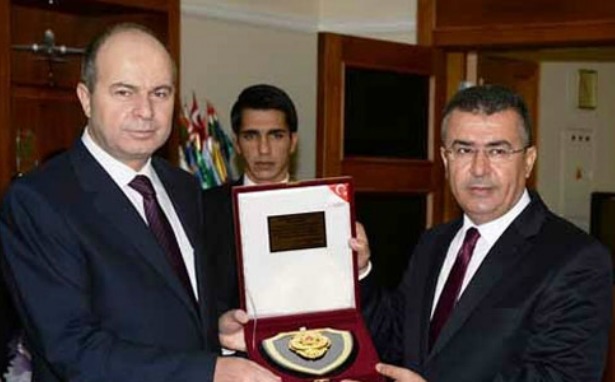Amid resignation calls directed at Turkey’s intelligence undersecretary and the interior minister, there are also questions surrounding the Ankara governor and police chief, whose paths crossed with the spy chief during the 2013 Reyhanlı Massacre The iron law of Turkish politics must be that those in power do not resign in the wake of massacres […]

Amid resignation calls directed at Turkey’s intelligence undersecretary and the interior minister, there are also questions surrounding the Ankara governor and police chief, whose paths crossed with the spy chief during the 2013 Reyhanlı Massacre
The iron law of Turkish politics must be that those in power do not resign in the wake of massacres or other catastrophic events. Surprising absolutely no one, no officials bearing political responsibility after the Roboski, Reyhanlı, Diyarbakır, Suruç, Ankara and Sultanahmet massacres – all of which occurred during Justice and Development Party (AKP) rule – ever deigned to resign in the aftermath. Now, Ankara has returned to the list with the 17 February bombing that killed 28 in the heart of the capital; naturally, no one has quit.
After all the massacres, President Recep Tayyip Erdoğan, Prime Minister Ahmet Davutoğlu, the ministers in AKP governments and senior civil servants have all elected to protect their seats rather than resign. Many, in fact, have even been awarded in the aftermath of several bombings.
Following the 10 October 2015 Ankara Massacre that killed at least 100 peace activists, then-Interior Minister Selami Altınok claimed in front of the cameras that there had been no security shortcomings.
“It’s not appropriate to engage the resignation mechanism after every incident,” Altınok said in reference to calls for Erdoğan, the interior and justice ministers and Ankara’s governor to quit. “We’re running a state. We’re people – we can all makes mistakes.”
In the wake of the 17-25 December 2013 corruption operations, Altınok was specially flown in by Erdoğan’s private plane to become Istanbul police chief. After the 10 October Ankara Massacre, he was removed from office amid increasing reaction that focused initially on the Ankara police, intelligence and security chiefs before being directed more squarely at the government.
“Immediate resignations no solution”
“These friends of ours are fighting a battle against terrorism in the four corners of the country. Our governors and police chiefs are involved in this struggle,” Erdoğan said after the 10 October Massacre. “You can’t solve the problem with an immediate resignation. Let’s determine where there are shortcomings. If there’s a question of official negligence, both the prime minister and the relevant authorities will take the necessary steps to ensure success.”
But amid new resignation calls directed at National Intelligence Organization Undersecretary Hakan Fidan and Interior Minister Efkan Ala, there are also questions surrounding Ankara Gov. Mehmet Kılıçlar and Turkish Police Chief Celalettin Lekesiz.
Paths that crossed in Reyhanlı
The 11 May 2013 Reyhanlı Massacre, in which 52 people were killed in a car bombing blamed on Islamist extremists in Hatay on the Syrian border, occurred under the watch of MİT Undersecretary Fidan, as well as under the nose of then-Hatay Gov. Lekesiz. Far from resigning, however, Lekesiz was promoted a year later to the position of Turkish police chief. Likewise, then-Turkish Police Chief Kılıçlar was also not subjected to any punishment for security shortcomings, instead receiving a promotion in 2014 to the position of Ankara governor. Both men were in charge during the 10 October Ankara Massacre, but both succeeded in maintaining firm grasps on their positions.
Interior minister ‘sheds light’ on incident
Winning the night’s prize for stating the obvious, Interior Minister Efkan Ala noted on Twitter after the bombing in Ankara’s “most secure” neighborhood that “it is an attack against our country.” Praised by Erdoğan as an “exemplary governor,” Ala attracted attention when he was appointed as a minister despite not even being an MP. Since being appointed as a minister for a second time, he has drawn headlines for his participation in the dirty war against Kurds in Turkey’s southeast.
Sendika.Org